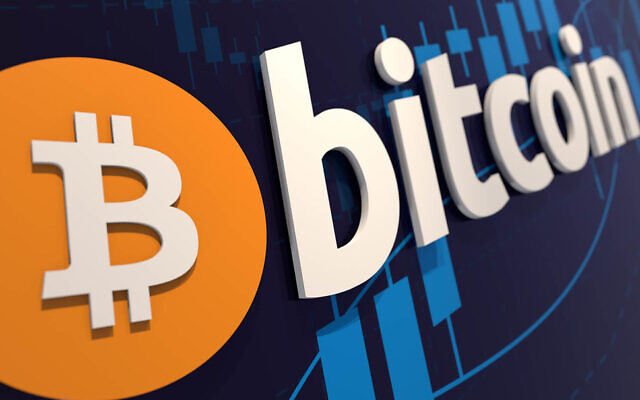Bitcoin: Hot Air or ‘New’ Gold?
Advisors and investors offer opinions on this highly volatile, some say unfathomable commodity.
After 37 years with the Atlanta Journal-Constitution and now with the AJT, , Jaffe’s focus is lifestyle, art, dining, fashion, and community events with emphasis on Jewish movers and shakers.
Cryptocurrency may be revolutionizing the world monetary system, but some compare it to “air” with rocket volatility fringing on fraud. Experienced financial advisors scratch their heads while others view it as a golden ticket. Note that bitcoin is just one in the more than 4,000 in the cryptocurrency category. Even Facebook is jumping on board.
Kenny Baer, managing partner of Baer Wealth Management, weighed in. “Historically, an investment in any crypto behaves like a commodity in that it has very high volatility and low expected rates of return. That doesn’t mean you can’t make a lot of money buying at the right time, but the risk is greater than you probably realize. If it keeps you from FOMO (Fear of Missing Out), then it’s well worth a dabble.”

Baer likens bitcoin to a currency, no different than the U.S. dollar or Japanese yen. “Can the price of gold or the value of the U.S. dollar go up? Does the value of a Picasso or a Rembrandt have a ceiling?” He added, “It’s buying something that’s only value is what the next guy/girl is willing to pay. It’s not creating anything. If you buy Coca-Cola, Apple, Amazon, Tesla or any business (public or private) you are making an investment in that business. You’re purchasing the right to future cash flows and that’s more or less what the price on which that company is based. The price of a bitcoin is only what the market says it’s worth. The market can say it’s worthless tomorrow because it has no functional use, nor does it create any profits.”
Ed Mendel, co founder of Ned Davis Research, and Davis, Mendel & Regenstein, stated, “No one understands how it originated or even where it is presently. It has useful purposes like doing drug deals and money laundering, or as a trading vehicle. Unlike gold, it has no underlying intrinsic value. You can take a gold coin to deep Africa and buy something, which is not true for bitcoin on a computer, which can be hacked and dependent on electricity. … Just the rumor of the U.S. cracking down on money laundering sent bitcoin down 18 percent in minutes. Recently Turkey banned it. Other governments can ban it if it becomes a threat.”
Brian Lieberman, a private wealth advisor, offered his take. “Up until 2020 I didn’t see crypto currencies becoming an asset class. Now it seems fairly visible that a new asset class has been born. Bitcoin is becoming ‘digital gold.’ It gained a lot of validity as I watched a number of high-profile corporations invest in it. The banks are giving the blessing to facilitate crypto investing. It’s becoming more mainstream to invest in digital currencies. There’s likely a lot more upside in the long term as more assets flow in. Would I buy this second?
Probably not. Large selloffs must be the time to buy. I would only buy after drops of 25 to 30 percent from the recent highs.” Note that as of April 25, one bitcoin equals $49,969 dollars.
Private investor Reg Regenstein muses, “There is no way you or I could understand the rationale for buying BTC as a cult investment. I think bitcoin will keep going up, but wouldn’t bet a lot on that. Someone against my advice, bought at $6,000, now is worth $60,000.”

In his Current Affairs article last month, “Why Cryptocurrency Is a Giant Fraud,” writer Nathan Robinson is not so nuanced. He admonished getting past the rhetoric and illusions. “Using it doesn’t create greater security or safety for one’s finances,” Robinson stated. “It is not convenient or free. Its volatility makes it functionally useless as a currency… cryptocurrency also offers new and scary ways that you can actually lose all of your money.”
Jay Starkman, a highly respected Atlanta tax expert in public accounting, warned, “[The] IRS is concerned about anyone using a virtual currency (for example Bitcoin) and has a new question on returns that everyone must answer.”
Baer concludes, “Go in with eyes wide open as a small portfolio part. As an advisor, my job is to maximize return and minimize risk. I can more or less mathematically do that in public markets. Is crypto currency the wave of the future, does it take over the U.S. dollar? I doubt it, but I certainly wouldn’t have told you 20 years ago that Apple computers would be tops in providing cell phones to the world.”




comments